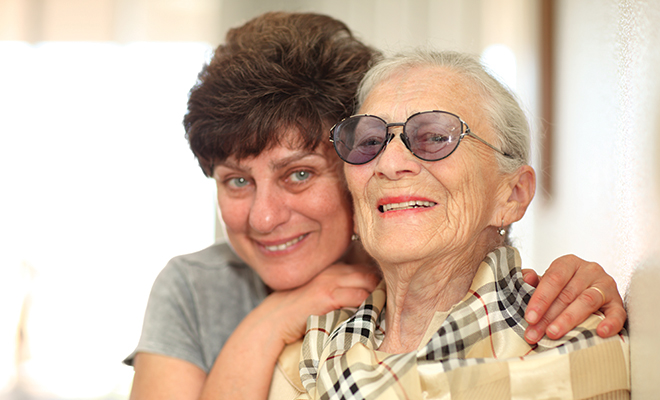
Hope for the Sandwich Generation
Many individuals in their 40s and 50s may find themselves leading a double life these days. No, they are not doing anything unscrupulous. They are simply a part of an ever-growing club known as the sandwich generation.
This term describes those who tend not only to their own families but also to the needs of their aging parents. While caring for both your children and your parents at the same time can be quite stressful and may require time management prowess, it can be done, provided you have a sense of what resources are available to help you transition among those multiple hats of responsibility you wear.
As Americans age, we are seeing an increase in the number of multigenerational caregivers. According to National Alliance for Caregiving, 9.3 million Americans are a part of the sandwich generation, and as the baby boomer population ages, that number is expected to increase considerably over the next two decades. The American Association for Retired People noted that the typical sandwich generation member is a 48-year-old woman. She maintains a paying job and spends an average of 20 hours a week providing care for a parent.
Juggling both elder care and childcare at the same time is a significant challenge, and it can lead to stress, financial hardship and even depression. And the COVID-19 pandemic has not made caregiving any easier. Multigenerational caregivers are under tremendous stress because they simply don’t have enough time to tend to all of their responsibilities. Additionally, those in the sandwich generation frequently realize a negative impact upon their careers and finances. It can become both physically and mentally exhausting to maintain this balancing act. Fortunately, there are actions you can take to minimize that stress, and it begins with taking care of yourself first.
When you are a care provider for multiple individuals, from your kids to your spouse to your parents, finding the time to take care of yourself usually goes on the back burner. That’s a big mistake. Many experts note that it is vitally important to practice the art of self-care. This can translate to many things, such as getting plenty of exercise, ample rest, proper nutrition and staying current on your own doctors’ appointments as needed. When you tend to your own mental and physical needs, you are far more capable of tending to those of others.
If you have a job outside of taking care of your parents, speak to your boss about a more flexible schedule. Some employers offer senior care benefits. Statistics have shown that more hours are lost in the workplace within the United States due to employees having to care for their aging parents versus their own sick time or even the sick time of their children.
Don’t be afraid to ask for help. If there are friends and other family members in your life who are willing to lend an extra hand, let them. If you don’t have a line of volunteers standing outside your door, find a senior care aide to assist with your parents while you accompany your son to baseball practice or your daughter to her dance class. Consider hiring a babysitter to watch the kids while you take your mom to the doctor. The Alzheimer’s Foundation and AARP have partnered to create Community Resource Finder, sharing resources locally available.
If taking care of an aging parent is leaving you strapped for quality time with your family, consider getting a housekeeper to clean your home, if finances allow. If your children are old enough to assume household chores, have them pitch in.
Learn the art of prioritizing. There are just 24 hours in a day and you are one person. Make a list of all the things that need to be done and then prioritize them. Are there certain things you can cut out to minimize your daily workload? Is there something you can delegate to another family member?
Being a part of the sandwich generation is not easy, and the stress will never fully go away. Sometimes, all it takes is just having that one person in whom to confide to simply vent your frustrations. Talk to family members about what you are struggling with or join a local support group. When you find other individuals going through similar situations, they can become a support system for you.
Finally, it’s okay to be selfish and take time for yourself. Take that yoga class. Watch your favorite show on TV. Pick up that book you have wanted to read. Sometimes, you may just have to take a step back and breathe.
Remember, it’s a privilege and an honor to take care of your aging parents, as one day, all of these moments, even the most frustrating of them, will become memories to which you will longingly cling. ■
Sources: aarp.org, aplaceformom.com, care.com, communityresourcefinder.org and caregiving.org.







